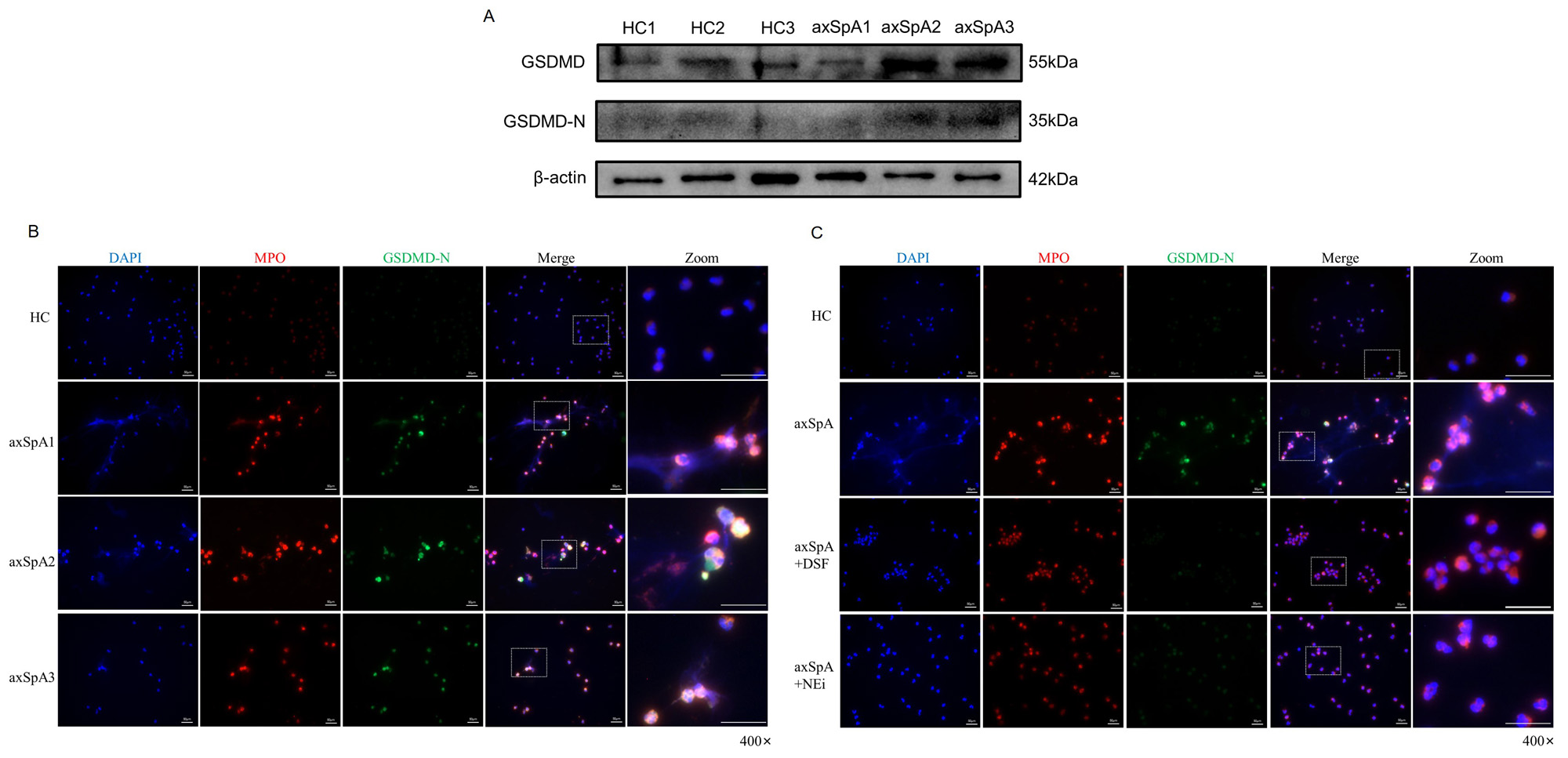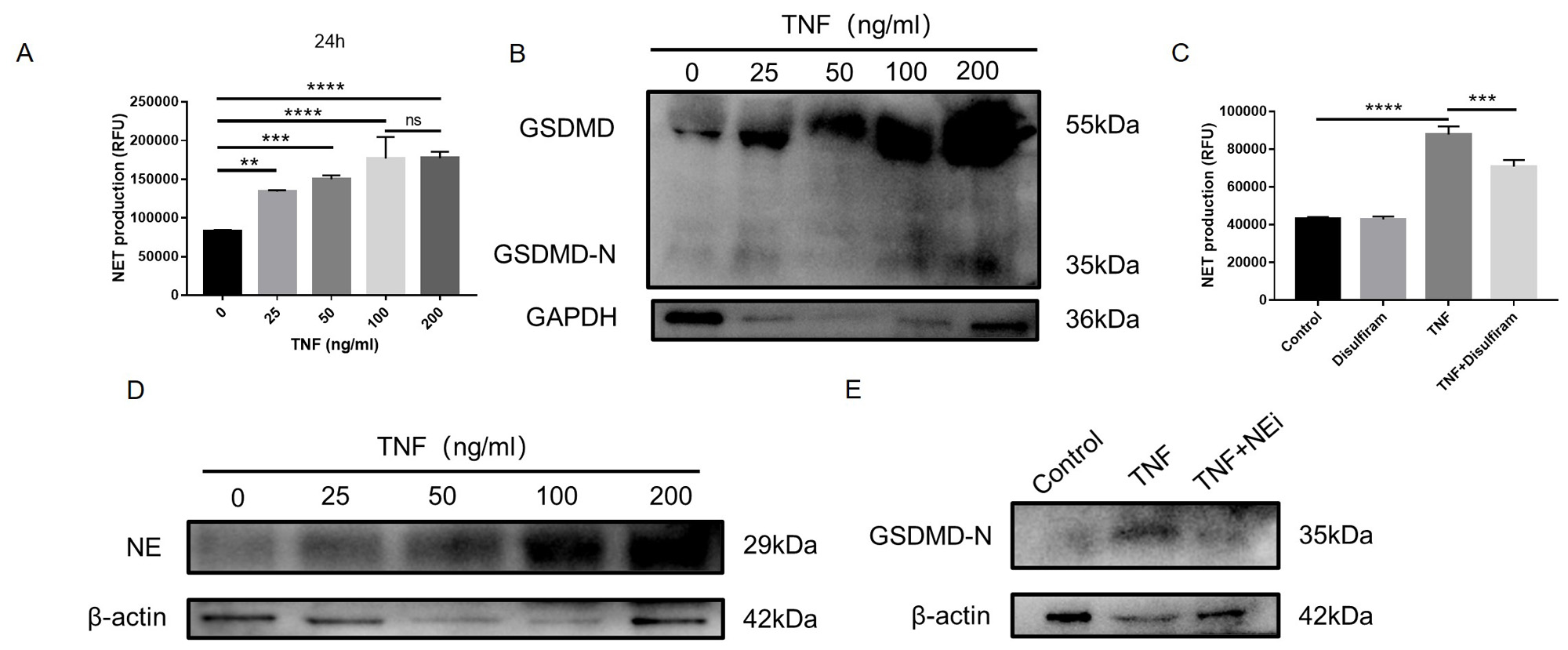Session Information
Date: Tuesday, November 14, 2023
Title: (1776–1795) Spondyloarthritis Including Psoriatic Arthritis – Basic Science Poster
Session Type: Poster Session C
Session Time: 9:00AM-11:00AM
Background/Purpose: Emerging studies have shown that neutrophil extracellular traps (NETs) are increased and associated with the disease activity in patients with axial spondyloarthritis (axSpA). However, the molecular mechanism underlying the release of NETs remains unclear in axSpA. In this study, we aimed to investigate the role of TNF/neutrophil elastase (NE)/Gasdermin D (GSDMD) in the release of NETs in axSpA.
Methods: The expression of GSDMD in the neutrophils of axSpA patients was analyzed by Western blot and immunofluorescence. The role of NE/GSDMD in the NETs release of axSpA patients was tested. Furthermore, the effect of TNF on NE/GSDMD-mediated NETs was analyzed.
Results: Compared with the healthy controls, increased expression of GSDMD and the N-terminal fragment of GSDMD (GSDMD-N) were detected in the neutrophils of axSpA patients. In addition, higher expression of GSDMD-N was found to be associated with the increased NETs structures in axSpA, which was blocked by either GSDMD or NE inhibitor. Furthermore, TNF induced the release of NETs through the NE/GSDMD pathway.
Conclusion: These results demonstrated that TNF/NE/GSDMD pathway plays a critical role in the NETs release in axSpA, which reveals that NE/GSDMD may serve as novel potential targets for inhibiting NETs to treat axSpA.
To cite this abstract in AMA style:
Li Y, Peng X. TNF Induces Neutrophil Elastase/Gasdermin D-mediated Neutrophil Extracellular Traps in Axial Spondyloarthritis [abstract]. Arthritis Rheumatol. 2023; 75 (suppl 9). https://acrabstracts.org/abstract/tnf-induces-neutrophil-elastase-gasdermin-d-mediated-neutrophil-extracellular-traps-in-axial-spondyloarthritis/. Accessed .« Back to ACR Convergence 2023
ACR Meeting Abstracts - https://acrabstracts.org/abstract/tnf-induces-neutrophil-elastase-gasdermin-d-mediated-neutrophil-extracellular-traps-in-axial-spondyloarthritis/


